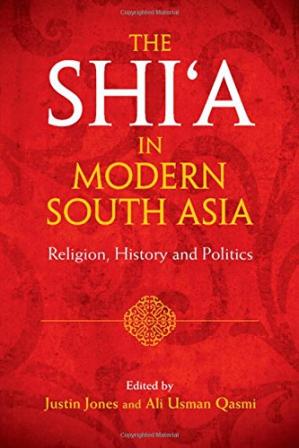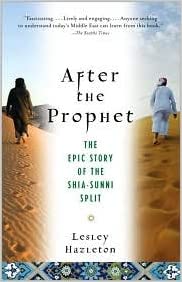Parachinar, Nov. 22, 2024 — The Shia Pashtun tribes of Parachinar in Kurram District, northwest Pakistan, have long been a symbol of resilience in the face of grave danger. This predominantly Shia Muslim community, mainly belonging to the Turi and Bangash tribes, stands as one of the most vulnerable populations in the region. Historical land disputes, sectarian identity, and political neglect have compounded their challenges, leaving them exposed to systematic violence for decades.
Historical Context: A Legacy of Conflict
The roots of Parachinar’s woes trace back to colonial times when disputes over land between the Shia tribes and their Sunni neighbors became contentious. These conflicts escalated in the 1980s with the advent of the U.S.-backed Afghan jihad against the Soviet Union. During this period, Pakistan’s military government, under Gen. Zia-ul-Haq, aligned itself with Saudi Arabia, embedding itself in the Saudi-Iran proxy war that spilled into Pakistan.
The region became a breeding ground for Deobandi seminaries, backed financially and ideologically by Saudi Arabia. These seminaries produced a generation of militants who viewed Shia Muslims as heretics. In turn, this fueled a wave of sectarian violence, with Parachinar becoming a focal point due to its geographical and ideological significance.
Rise of the Jihadi Networks
The Afghan jihad gave birth to extremist networks that targeted Shia Muslims under the guise of holy war. Supported by narcotics trade and unregulated commerce, these networks evolved into organized groups like Sipah-e-Sahaba Pakistan (SSP) and later, Lashkar-e-Jhangvi (LeJ). By the 1990s, these groups became increasingly involved in attacking Shia processions, mosques, and individuals.
Parachinar, strategically located near the Afghan border, became a vital link in Pakistan’s military plans to control routes into Afghanistan. The Shia tribes resisted attempts to establish militant bases in their region, earning the ire of extremist groups and segments within the Pakistani establishment. The creation of the Taliban, particularly the Haqqani network, further marginalized these communities.
Modern Struggles: An Endless Siege
Today, the situation remains dire. Parachinar’s Shia population has faced blockades, targeted killings, and mass attacks. Reports indicate that since October 2024 alone, over 100 Shia Pashtuns have been killed, with more than 300 injured. The recent surge in violence has been attributed to the Pakistani Taliban (TTP), allegedly supported by factions within Afghanistan’s ruling Taliban regime.
Civil society activists and analysts suggest that the ongoing violence is a coordinated effort to force the Shia tribes into submission, giving militant groups control over vital routes into Afghanistan. “The Haqqani network, with strongholds in neighboring provinces, has been instrumental in orchestrating these attacks,” said a security expert who wished to remain anonymous.
State and Media Response: A Deafening Silence
The Pakistani government has been accused of inaction, with federal and provincial authorities deflecting responsibility. A fact-finding commission’s report on the atrocities remains unpublished, further fueling suspicions of state complicity.
The mainstream media has largely downplayed the sectarian nature of the violence, often labeling it as tribal disputes or Sunni-Shia clashes. Experts criticize this narrative, asserting that it obscures the systematic targeting of Shia Muslims.
“Pakistan’s establishment has historically avoided confronting extremist ideologies that threaten minorities,” said Dr. Khalid Zaheer, a political analyst. “This reluctance has emboldened groups like the TTP to act with impunity.”
A Community Abandoned
The plight of Parachinar’s Shia tribes is compounded by their isolation. Geographically cut off from major cities, the community relies on precarious road links often disrupted by blockades and attacks. This isolation has not only hindered economic development but also left residents vulnerable to health crises and food shortages.
“We are trapped in our own land,” lamented a Turi elder. “The government treats us as expendable, while our children die for lack of medicine and our youth for daring to resist oppression.”
The Way Forward: Calls for Action
To address Parachinar’s dire situation, experts advocate a multifaceted approach:
- State Responsibility: The Pakistani government must acknowledge the sectarian dimension of the violence and ensure accountability for those complicit in perpetuating it.
- Security and Development: Enhanced security measures, including clearing militant safe havens and reopening transport routes, are critical. Equally important is investment in local infrastructure and education to uplift the community.
- Media Integrity: Journalists and media outlets must challenge the prevailing narratives and bring attention to the systemic persecution faced by Shia Pashtuns.
- International Advocacy: Human rights organizations should pressure Pakistan to protect vulnerable minorities and release the findings of the fact-finding commission.
The resilience of Parachinar’s Shia tribes in the face of relentless persecution is a testament to their strength. However, their survival hinges on immediate, tangible action from both the Pakistani state and international community. Failure to act will not only doom a community but also undermine Pakistan’s long-term stability.
#shiagenocude #firing #Parachinar See less
Comments






